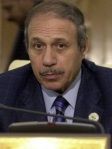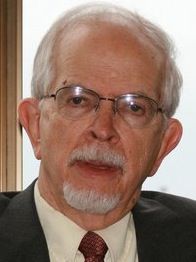
Publisher:
Bonnie King
CONTACT:
Newsroom@Salem-news.com
Advertising:
Adsales@Salem-news.com

~Truth~
~Justice~
~Peace~
TJP
Feb-26-2011 22:51


 TweetFollow @OregonNews
TweetFollow @OregonNews
Will The Arab Revolutions Finally Penetrate the US Echo Chamber?
James M. Wall Salem-News.comAlastair Crooke, a veteran British diplomat and author, wisely reminds us that echo chambers are extremely difficult to penetrate.
 Palestinians in Gaza celebrate the revolution in Egypt. Al Jazeera as it appeared in the Palestine Chronicle. |
(CHICAGO) - The revolutions that began in Tunisia, continued in Egypt and now threaten Libya’s Muammar Gaddafi, are spreading throughout the Middle East. Perhaps, one day, the revolution may even engulf Palestine.
There are signs emanating from the echo chamber that controls US thought on all matters pertaining to Israel, that sounds of the revolutions may soon penetrate into the chamber.
What, exactly, is an “echo chamber”? It is a place where the only sounds you hear are the sounds generated inside the chamber. Or to be more precise, the sounds the Friends of Israel have steadfastly allowed to penetrate the Washington echo chamber.
Consider all those peace and justice Christian denominations that marched with Martin Luther King, Jr., and embraced the South African divestment campaign against apartheid. By any standard, they should be in the forefront of demanding an end to Israel’s occupation of the Palestinian people.
With notable exceptions, they are not anywhere near the forefront. Instead, they live comfortably inside the echo chamber, brain washed by some of the world’s finest propagandists.
As a result, many denominations are still debating divestment resolutions with the resolute determination of White Citizens Councils protecting “our Southern way of life”.

Echo chambers take a long time to build. They are also difficult to either break into, or to leave.
Tom Engelhardt describes the Washington echo chamber this way:
I mean not just the Obama administration, or the Pentagon, or our military commanders, or the vast intelligence bureaucracy, but all those pundits and think-tankers who swarm the capital, and the media that reports on them all. It’s as if the cast of characters that makes up “Washington” now lives in some kind of echo chamber in which it can only hear itself talking.
Engelhardt created and runs the web site, TomDispatch. He is also a fellow with the Nation institute. In his recent Dispatch he writes:
It would seem like a good moment for Washington — which, since September 12, 2001, has been remarkably clueless about real developments on this planet and repeatedly miscalculated the nature of global power — to step back and recalibrate.
Recalibrate, as in, stop living in the past when Arabs were described by outside propagandists as dangerous terrorists. Recalibrate, as in recognizing that democracy and freedom are just as attractive to Arabs as they are to anyone else in the world.
Recalibrate, as in demanding that Israel pull back its borders to the 1967 Green Line, and cease forever its historically unsustainable claim on the land that has not been called Judea and Samaria since the Temple was destroyed by the Romans in 70 CE during the Siege of Jerusalem.
And that, my friends, was a long time ago, which even Christian pastors must know.
Thanks to the revolution of the young, there are signs of small cracks in the US echo chamber. The tight bond between Israel and the US was celebrated as a high moment at Camp David in 1979.
But the bond was betrayed on the day President Jimmy Carter discovered that Israeli Prime Minister Menachem Begin never intended to keep his Camp David agreement to halt settlement construction.
Begin’s successors have faithfully adhered to that betrayal even as they strengthened the Washington echo chamber while protesting they were in search of a “partner for peace”.
Politico’s Ben Smith sees signs of change.
For two years, the Obama White House has tried to give Israeli Prime Minister Benjamin Netanyahu the benefit of the doubt as a prospective peace partner — viewing him as a leader who shared U.S. goals but faced tough domestic political constraints that Washington felt obliged to help counter. That’s over.In recent weeks... a new, more hard-headed view of Netanyahu has become cemented in the West Wing — one that rates the chances of a personal alliance growing between the Israeli leader and President Barack Obama to be just about zero.
Smith points to the departure from the White house of Rahm Emanuel (now Chicago’s mayor-elect) and David Alexrod (back in Chicago to provide strategy for Obama’s re-election). He suggests that this duo was involved heavily in Middle East affairs.
Smith correctly identifies the shift in tribal loyalty from Emanuel and Alexrod to that of the more practical orientation of new staffers Bill Daley and David Plouffe, neither of whom have any known solidarity with Israel.
However, he may be expecting too much from that personnel tonal shift. The White House is still well staffed with friends of Israel. It is hard to imagine that Rahm Emanuel would have allowed anyone with Arabist tendencies to slip into the House that Rahm managed for two years.
The presence of so many high profile American journalists in Cairo during the overthrow of President Mubarak, is a more pragmatic signal that the US media is willing, under limited circumstances, to shine a light on the story of the revolution which the rest of the world is following so closely.
Rashid Khalidi, writing in the Foreign Policy blog, has detected a long-overdue shift in media portrayal of young people leading the revolutions:
The same mainstream Western media that habitually conveys a picture of a region peopled almost exclusively by enraged, bearded terrorist fanatics who “hate our freedom” has begun to show images of ordinary people peacefully making eminently reasonable demands for freedom, dignity, social justice, accountability, the rule of law, and democracy.Arab youth at the end of the day have been shown to have hopes and ideals not that different from those of the young people who helped bring about democratic transitions in Eastern Europe, Latin America, and South, Southeast, and East Asia.
These young voices have been a revelation only to those deluded by this media’s obsessive focus on Islamic fundamentalism and terrorism whenever it turns its attention to the Middle East. This is thus a supremely important moment not only in the Arab world, but also for how Arabs are perceived by others.
A people that has been systematically and habitually maligned — probably more than any other in recent decades — are for the first time being shown in a new, and largely positive, light.
A comment in London’s The Economist finds hope in the revolution.
The lesson from the Arab awakening is an uplifting one. Hard-headed students of realpolitik like to think that only they see the world as it truly is, and that those who pursue human rights and democracy have their heads in the clouds.In their world, the Middle East was not ready for democracy, Arabs not interested in human rights, and the strongmen the only bulwark between the region and Islamic revolution. Yet after the wave of secular uprisings, it is the cynics who seem out of touch, and the idealists have turned out to be the realists.
Israel’s biggest “fear selling point” is promoted by its campaign to spread the falsehood that Islamic forces will take over the revolutions. For a sample of the campaign, spend a little time watching Fox News.
For a look at how Israelis are being sold on fear, Neve Gordon, in the Palestine Chronicle, offers insights into this fear-mongering.
During the three week Egyptian revolution, he writes, “an Orientalist perspective permeated most of the discussion about Egypt, thus helping to bolster the already existing Jewish citizenry’s fear of Islam. Political Islam is constantly presented and conceived as an ominous force that is antithetical to democracy.
The proper response to that campaign is to shout for all to hear,”let them come to Alexandria, Egypt”. And then let them read what Al Arabiya reported after the explosion in Alexandria.
Egypt’s general prosecutor in the post-Mubarak goverment, has opened a probe into former Egyptian Interior Minister Habib el-Adly’s reported role in the New Year’s Eve bombing of the al-Qiddissin Church in Alexandria. The blast killed 24 people.

The probe instructs Egyptian prosecutor Abd al-Majid Mahmud, to investigate news media reports which suggest that the former interior minister (pictured here) masterminded the deadly church attack “with the intent to blame it on Islamists, escalate government crackdown on them, and gain increased western support for the regime.”
If this deadly attack was, in fact, the work of the government of former President Mubarak, then he was doing what dictators do, attack his own citizens and blame it on a handy enemy, in this case, the Muslim Brotherhood.
The video below demonstrates how some citizens of Alexandria responded to the attack on a Christian church. It show their excitement when the Egyptian flag is seen connecting a mosque across the street from the al-Qiddissin Coptic Christian Church, where 24 died on New Year’s eve.
At the time of the bombing, the BBC reported:
About 1,000 worshippers were attending the Mass at the al-Qiddissin (Saints) Church in the Sidi Bechr district of the Mediterranean port city. As the service drew to a close after midnight, a bomb went off in the street outside.
That was almost two months ago. Now at the site of the explosion, there are joyful noises in the street, noises that are loud so you might consider lowering the volume before you view the one minute, plus, video.
At the end watch for the joy of the Coptic priest as he mingles with the young crowd.
Or if you really don’t really want to hear the noise, then hit the mute button. In that way, you will be joining the current US and Israeli governments which continue to operate inside their own “echo chambers”, where the sounds of revolution are muted by the continued reliance on military power.
Will this current excitement in Alexandria, Cairo and elsewhere, ultimately penetrate the echo chambers in Washington, Tel Aviv and London?
Alastair Crooke, a veteran British diplomat and author, wisely reminds us that echo chambers are extremely difficult to penetrate.
His historical analysis carries the provocative title, Permanent Temporariness. The essay will appear in the upcoming March 3, 2011, London Review of Books. Crooke’s conclusions are sobering:
Israel’s vice-premier, Moshe Ya’alon, was candid when asked in an interview [published in Yediot Ahronot, in March, 2010]: ‘Why all these games of make-believe negotiations?’ He replied:“Because … there are pressures. Peace Now from within, and other elements from without. So you have to manoeuvre [cq]… what we have to do is manoeuvre with the American administration and the European establishment, which are nourished by Israeli elements [and] which create the illusion that an agreement can be reached …
I say that time works for those who make use of it. The founders of Zionism knew … and we in the government know how to make use of time.”
Sever Plocker, the deputy editor of Yediot Ahronot, wrote in January that Avigdor Lieberman’s recent plan for a Palestinian state without borders in half of Judea and Samaria was, on the basis of his earlier discussions with Binyamin Netanyahu, more or less the prime minister’s plan too.
Netanyahu argued that the current situation on the ground in Judea and Samaria is stable and safe, and constitutes, for all intents and purposes, a solution to the conflict.
The Palestinians already have three-quarters of a state … they have a flag, an international telephone prefix … All that will remain for the government to do, hinted Netanyahu, is only to agree to a change in name of the entity from ‘authority’ to ‘state’ and to toss it a few more bones, a few token signs of sovereignty, such as the right to mint its own currency – and peace will reign for 70 years to come.
The demise of the ‘peace process’ has given us a rare moment of clarity: since the release of the Palestine Papers, the fiction underlying it has become clear to everybody. Such clarity enables new possibilities to emerge. . . . Might the coming change in Egypt be an equivalent catalyst for Israelis and Palestinians?
 Journalism was Jim Wall’s undergraduate college major at Emory University, Atlanta, Georgia. He has earned two MA degrees, one from Emory, and one from the University of Chicago, both in religion. An ordained United Methodist clergy person; he and his wife, Mary Eleanor, are the parents of three sons, and the grandparents of four grandchildren. They live in Elmhurst, Illinois.
Journalism was Jim Wall’s undergraduate college major at Emory University, Atlanta, Georgia. He has earned two MA degrees, one from Emory, and one from the University of Chicago, both in religion. An ordained United Methodist clergy person; he and his wife, Mary Eleanor, are the parents of three sons, and the grandparents of four grandchildren. They live in Elmhurst, Illinois.
Jim served for two years on active duty in the US Air Force, and three additional years in the USAF (inactive) reserve. While serving with the Alaskan Command, he reached the rank of first lieutenant. He has worked as a sports writer for both the Atlanta Journal and Constitution, was editor of the United Methodist magazine, Christian Advocate for ten years, and editor and publisher of the Christian Century magazine for 27 years, starting in 1972. Time magazine wrote about the new editor, who arrived at the Christian Century determined to turn the magazine into a hard-hitting news publication. The inspiration for Wall Writings comes from that mindset and from many other sources that have influenced Jim’s writings over the years, including politics, cinema, media, American culture, and the political struggles in the Middle East. Jim has made more than 20 trips to that region as a journalist, during which he covered such events as Anwar Sadat’s 1977 trip to Jerusalem, and the 2006 Palestinian legislative election. He has interviewed, and written about, journalists, religious leaders, political leaders and private citizens in the region. You can write to Jim Wall at jameswall8@gmail.com.
Articles for February 25, 2011 | Articles for February 26, 2011 | Articles for February 27, 2011




Quick Links
DINING
Willamette UniversityGoudy Commons Cafe
Dine on the Queen
Willamette Queen Sternwheeler
MUST SEE SALEM
Oregon Capitol ToursCapitol History Gateway
Willamette River Ride
Willamette Queen Sternwheeler
Historic Home Tours:
Deepwood Museum
The Bush House
Gaiety Hollow Garden
AUCTIONS - APPRAISALS
Auction Masters & AppraisalsCONSTRUCTION SERVICES
Roofing and ContractingSheridan, Ore.
ONLINE SHOPPING
Special Occasion DressesAdvertise with Salem-News
Contact:AdSales@Salem-News.com
Salem-News.com:
Terms of Service | Privacy Policy
All comments and messages are approved by people and self promotional links or unacceptable comments are denied.
[Return to Top]
©2025 Salem-News.com. All opinions expressed in this article are those of the author and do not necessarily reflect those of Salem-News.com.